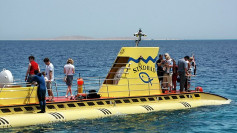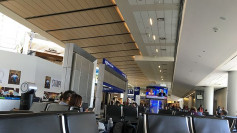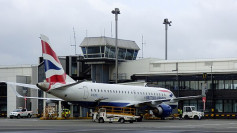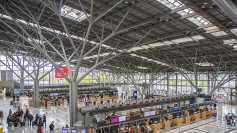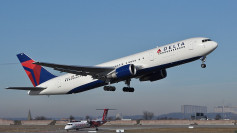Datuk Musa Yusof, Senior Director of International Promotion Division, Tourism Malaysia, said "there are huge potentials to cooperate in the area of Halal tourism between Malaysia and China".

Datuk Musa Yusof(Right), senior director of International Promotion Division, Tourism Malaysia, at panel discussion about Islamic tourism during MIHAS
Amid of rapidly growing competition in international tourism, an increasing number of destinations, such as Japan, Taiwan and Hong Kong, are aiming Muslim tourists for their powerful purchasing power.
According to GMTI (Global Muslim Travel Index) Annual Report 2017, there are estimated 121 million Muslim tourists traveling abroad in 2016, and the number is expected to grow to 156 million by 2020 with annual travel expenditure of 220 billion USD. The current market size is just behind China with 122 million outbound tourists in 2016.
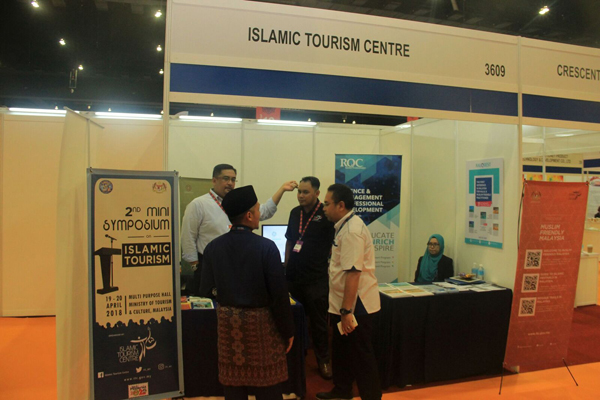
"Malaysia has its own competitiveness compared to other destinations. As one of the most popular Muslim travel destination, Malaysia is willing to share its own successful experience with China on how to expand the market of international Muslim tourists."Datuk Musa responded to questions from Business Times at a panel session on Islamic tourism at the Malaysia International Halal Showcase (MIHAS) on 6 April, 2018.
Along with the "Belt and Road" Initiative, Ministry of Culture and Tourism of China (formerly known as CNTA) is actively expanding and deepening tourism cooperation with Muslim countries. According to People's Daily, Mr. Li Jinzao, Vice Minister of Culture and Tourism, said "China will vigorously develop international Muslim tourism market".
For example, Guilin, one of the most popular touristic destination for its unique scenery of karst topography in China, initiated promotional activities with intention to attract more Muslim tourists to China in Kuala Lumpur on 18 January this year.
There is a long history of business and culture exchange between China and Muslim countries. As per recorded in The Old Book of Tang, the first classic historical work about Tang Dynasty (618-907 AD), Arab states had sent envoys to China for 39 times and many Muslim merchants came to China for trade during the same period.
As one of the oldest civilization, China has 52 UNESCO World Heritage Sites, the total number is ranked the second in the world, only after Italy with 53 sites. Besides, there are 21 million Muslims (unofficial source says 50 million) and 34,000 mosques in China. The Huaisheng Mosque, located in Guangzhou, is one of the oldest mosque in China, which was originally built in 627 AD.
According to GMTI Annual Report 2017, China is only ranked at the 17th place in global Muslim travel market, whereas, Singapore, Thailand and UK take the top 3 spots in the category of non-Muslim countries, which indicates Halal tourism is still at its early stage in China.
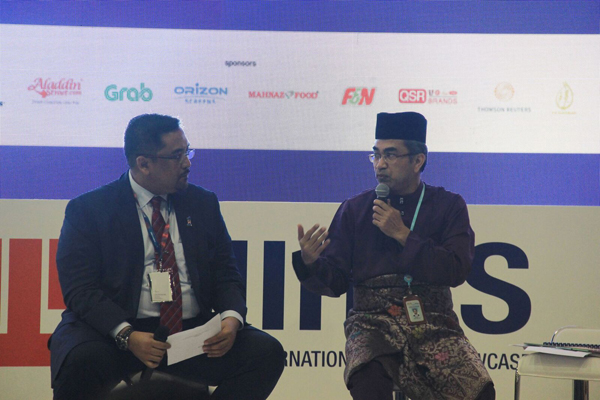
Dr. Azrul Anaz Mohd Any(Left), Director of Islamic Tourism Centre, and Datuk Musa Yusof(Right) at panel discussion
Dr. Azrul Anaz Mohd Any, Director of Islamic Tourism Centre, expressed that awareness of Halal tourism should be further promoted in China and other non-Muslim countries that wish to grasp more market share from international Halal tourism.
He explained to Business Times at the panel session, many travel and restaurant businesses in non-Muslim countries think Halal simply equals to porkfree, as a matter of fact, Halal food also means how it is processed has to comply with traditional Islamic law.
Malaysia has the right experience for China to improve competitiveness in Halal tourism market. From 30 March to 1 April, Malaysia attended Xi'an Silk Road International Tourism Expo, and Malaysia delegation exchanged experience in Halal tourism with its Chinese counterpart, Datuk Musa added.
At last, Datuk Musa said, "Mutual understanding is the prerequisite and key for tourism cooperation between Muslim and non-Muslim countries."
